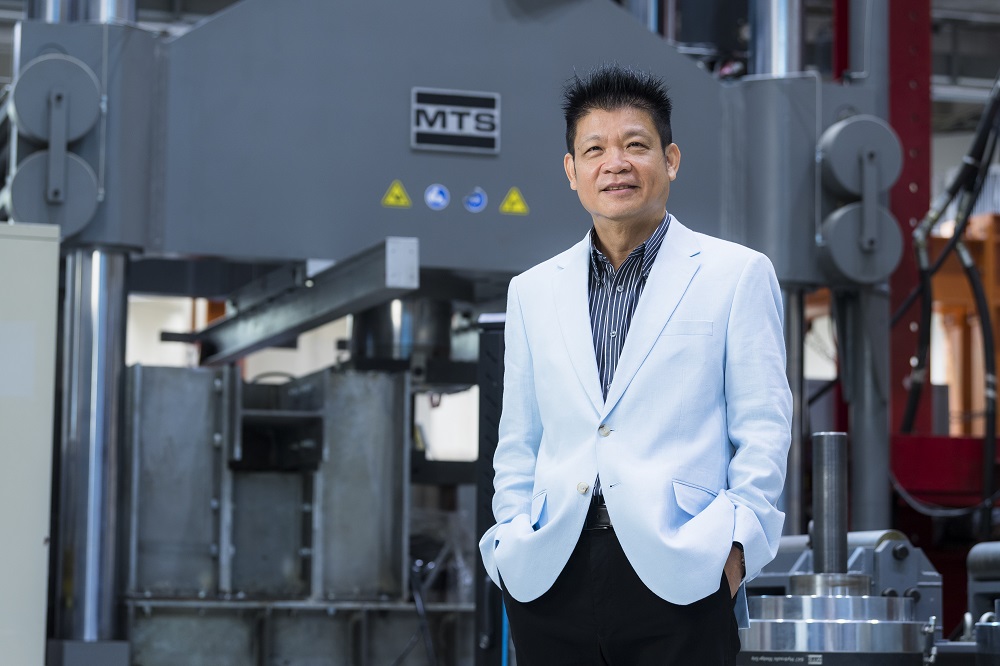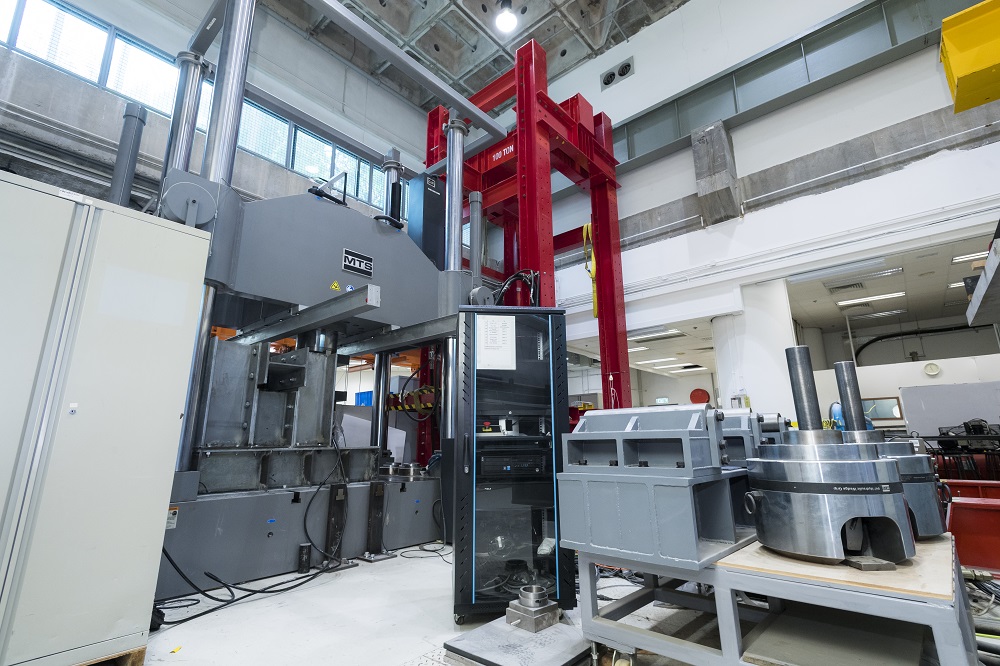Pioneering research on nanomaterials and green concrete - CityU scholar elected Foreign Member of Academia Europaea

Professor Liew Kim-meow, a renowned engineer and Chair Professor in the Department of Architecture and Civil Engineering at City University of Hong Kong (CityU), has been elected Foreign Member of the Academia Europaea for his significant contributions in engineering science. He feels privileged to be elected and the membership allows him more opportunities to interact with experts in the fields of civil engineering and other disciplines.
As a member of Academia Europaea, Professor Liew is keeping the door open for more research opportunities. “I feel privileged to be elected,” he noted. “Academia Europaea membership allows me more opportunities to interact with experts in the fields of civil engineering and other disciplines. It can also be beneficial for future research projects.”

Joining CityU in 2005, Professor Liew was the Head of the Department of Architecture and Civil Engineering from 2011 to 2017. He is very appreciative of the research facilities at the Heavy Structures Testing Laboratory, CityU. “This laboratory has taken years to build,” said Professor Liew. “Many of my research projects would never have got off the ground if not for the full support of CityU and President Way Kuo.”
Professor Liew’s main research activities focus on the mechanical behaviour of nanostructured materials and he has been working in this broad research field for over 20 years. He is internationally recognised for his academic excellence in computational mechanics, multiscale modelling, nanocomposite and functional materials, optimisation, and fire science.
His research in fire science has led to the design of a new eco-friendly flame retardant. Such kind of eco-friendly flame retardant that can enhance the fire-resistant performance of the construction materials and reduce the emission of harmful substances. It has impacted well beyond the field of civil engineering to chemical engineering and beyond.
Professor Liew’s research on carbon nanotube (CNT) and its composite materials has also received widespread attention within the field of engineered materials because of its unique multifunctional properties. His published journal articles have introduced how the CNT dispersion and reinforcement affect the various mechanical properties of cementitious composites, thereby paving the way for further industrial applications of this important nanomaterial.
Research on nanostructured materials and green concrete
Another major direction of his research on nanomaterials centres on green concrete. This involves the use of nanomaterials with waste material including waste aggregate (granular materials used in the production of concrete and mortar as a rigid skeletal structure), fibre waste, pulverized fuel ashes and silica fume for the production of sustainable and environment-friendly concrete and mortar. The production process does not lead to environmental destruction. Green concrete is not only stronger and more durable than conventional concrete but also promotes the sustainable use of waste materials and minimise the emission of harmful substances. This can reduce pollution to the environment and achieve symbiosis with the natural ecosystems. In his recent research, Professor Liew and his team have tried to assess the effects of recycled carbon fibres as reinforcement to cement-based materials. They found that recycled carbon fibres could effectively enhance the mechanical performance and significantly lower the environmental impact of cementitious composites.
Throughout the years, Professor Liew has been conducting broad-based research on recycled and green concrete. Green concrete promotes the use of waste materials and unconventional alternative materials, for example, geopolymer (a cement substitute and novel type of inorganic green construction material with good mechanical properties and excellent properties such as stress-resistant, acid-resistant, fireproof, heat-resistant as well as rapid solidification), plastic materials and rubber.
Producing concrete in sustainable and innovative ways can bring numerous environmental, technical and economic benefits, including lower energy consumption and carbon dioxide emissions in manufacturing, increased strength and stiffness, and cost-effectiveness.
A Highly Cited Researcher
Professor Liew has published over 800 articles in top-tier international journals including The Proceedings of the Royal Society A: Mathematical, Physical and Engineering Sciences; Computer Methods in Applied Mechanics and Engineering; and Journal of the Mechanics and Physics of Solids. He is listed by the Institute for Scientific Information (ISI, now renamed Web of Science) as a Highly Cited Researcher in Engineering since 2001. He is also listed by Clarivate Analytics as a 2018 Highly Cited Researcher in Engineering, 2019 and 2020 Highly Cited Researcher in Cross-Field Research. His publications have been cited by other professionals over 41,000 times and his current h-index is 99 (Google Scholar).
He is a Fellow of the Hong Kong Institution of Engineers, American Society of Mechanical Engineers, Institution of Mechanical Engineers in the UK and the Institution of Engineers in Singapore; a Chartered Engineer registered under the Engineering Council of the UK, and a Registered Professional Engineer under the Hong Kong Institution of Engineers. He was also a tenured Professor at Nanyang Technological University in Singapore and the Founding Director of Nanyang Center for Supercomputing and Visualization.
About Academia Europaea
Founded in 1988, Academia Europaea is a European, non-government association acting as an Academy. Among its members are scientists and scholars who work to promote learning, education and research. Academia Europaea has more than 4000 members and they are leading experts from the physical sciences, biological sciences and medicine, mathematics, humanities, social and cognitive sciences, economics and the law. There are 74 Nobel Laureates among them, including Sir Roger Penrose and Professor Reinhard Genzel, winners of the Nobel Prize in Physics 2020. Other members from CityU are Professor Chen Guanrong, Chair Professor of Electrical Engineering and Professor Philippe G. Ciarlet, University Distinguished Professor (College of Science).